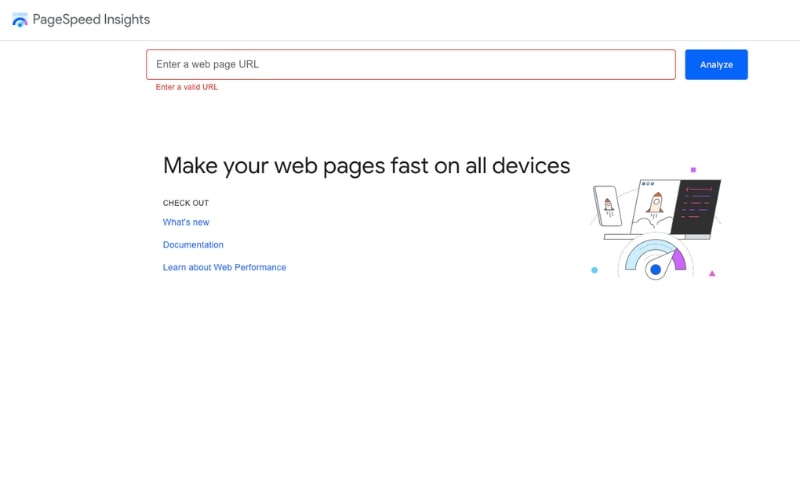Hyvä Theme is Now Open Source: What This Means for Magento Community - Mageplaza
Hyvä is now Open Source and free. Discover what changed, what remains commercial, how it impacts the Magento ecosystem, and how to maximize its full potential.
Vinh Jacker | 07-27-2023

In today’s fast-paced world, where users have short attention spans, having a fast website is more important than ever. However, unused JavaScript can slow down your website.
To improve your website’s performance and create a fast user experience, it’s time to reduce unused JavaScript. If you’re ready to get started, let’s begin!
Explore more:

In general, unused JavaScript refers to unexecuted code segments in web applications or websites, often caused by changes in requirements, refactoring, or conditional statements preventing certain code paths from being executed.
There are several factors that can contribute to unused JavaScript in a web application. Here are some common causes:
Code refactoring. The development process involves code changes, including feature additions, modifications, and removals. Incorrect removal of unnecessary functions can result in unused JavaScript.
Iterative development. Iterative development gradually adds new features, causing unused older JavaScript code to accumulate and become unutilized over time.
Frameworks and libraries. Web applications often use frameworks and libraries for development, potentially containing default code or functionality that can contribute to unused JavaScript if not removed.
Conditional code. Conditional statements in JavaScript control code paths, but improper updates or removal can make code portions unused. Properly updated conditions ensure code integrity and maintainability.
Dead code elimination. Minification tools remove unused code to reduce file sizes and improve performance, but may not catch all instances, especially dynamically determined at runtime.
Legacy code. Unused JavaScript accumulates in large codebases due to changes in requirements, priorities, or deprecated features, affecting long-term projects.
Read more: 12+ Magento Website Maintenance Tips That You Should Implement Now

Removing unused JavaScript from your website offers several benefits:
Improved performance. Unused JavaScript increases website file size and loading time. Therefore, removing it reduces data download and processing, improving performance and faster page load times.
Bandwidth efficiency. Optimizing JavaScript code reduces data transfer between server and user, especially for limited bandwidth or mobile devices. This ensures efficient bandwidth usage and reduces costs.
Enhanced user experience. Improve user experience by removing unused JavaScript, ensuring faster page load times, reducing frustration and abandonment, and improving user experience.
Simplified maintenance. Unused JavaScript on websites complicates maintenance and updates. Hence, removing it simplifies the codebase, making it easier to maintain, debug, and enhance future website enhancements.
Reduced security risks. Unused JavaScript can introduce security vulnerabilities to your website if not regularly updated or maintained. So, removing unused JavaScript minimizes the attack surface and reduces potential risks.
Say Goodbye to Slow Page Loading
Get Website Performance Audit. Speed it up - earn more sales & customer satisfaction.

There are two most popular tools to reduce unused JavaScript, which are PageSpeed Insight and GTmetrix. Let’s dig into each of them
This is a web performance analysis tool provided by Google that can help you identify unused JavaScript on your website. By using PageSpeed Insights, you can optimize website performance by detecting unused JavaScript and providing recommendations.

Here’s how you can use PageSpeed Insights to find and reduce unused JavaScript:
Step 1: Visit PageSpeed Insights: https://pagespeed.web.dev/ and enter your website URL.
Step 2: Click “Analyze” to see a performance report.
Step 3: Look for “Unused JavaScript” recommendations.
Step 4: Click the “Coverage” tab to see which JavaScript code is actually used.
Step 5: Focus on the “Unused JavaScript” section to identify files or code blocks for removal or optimization.
Step 6: Remove unused files or optimize unnecessary code.
Step 7: Rerun the test to see improvements and repeat for further
GTmetrix is a popular web performance testing tool that offers insights into website optimization. In particular, it provides metrics and recommendations to help identify and reduce unused JavaScript on websites.

Here’s how you can make use of GTmetrix to reduce unused JavaScript:
Step 1: Enter your website’s URL into the GTmetrix testing tool. GTmetrix will analyze your website’s performance and provide a detailed report containing various performance metrics.
Step 2: GTmetrix generates a PageSpeed score, which indicates how well your website is optimized for speed.
Step 3: Identify unused JavaScript files in the chart and investigate if they have a long loading time or are not required for the initial page load. GTmetrix creates a waterfall chart to visualize website resource loading.
Step 4: Look for large JavaScript files that contribute significantly to the overall page weight because large files are more likely to contain unused code that can be removed or optimized.
Step 5: Optimize JavaScript delivery by utilizing code splitting and bundling techniques.
Step 6: GTmetrix often suggests optimizing JavaScript, caching, and other techniques for website performance. Following these recommendations can help reduce unused JavaScript.
Identifying and removing unused JavaScript from your website is essential in optimizing its performance and reducing unnecessary load times. By eliminating unused code, you can improve the efficiency of your website and enhance the overall user experience.

Here’s a guide on how to identify and remove unused JavaScript from your website:
Review the website’s JavaScript codebase, and identify unused or unnecessary areas.
Utilize code editors or an integrated development environment for advanced search capabilities.
Optimize website analytics for performance improvement on high-traffic pages.
Disable JavaScript sections temporarily without permanently deleting them.
Utilize browser tools for analyzing JavaScript usage and reloading webpages.
Utilize static analysis tools to detect unused variables, functions, or imports.
Utilize tree-shaking in modern JavaScript frameworks to eliminate unused code during the build.
To sum up, maintaining and updating your website’s JavaScript codebase is important for optimal performance and a seamless user experience, but remember to be cautious not to remove code with dependencies or specific scenarios.
Code-splitting is a technique that involves breaking down your JavaScript code into smaller chunks, which are loaded only when needed. By doing so, you can reduce the initial load time of your website and improve its overall performance.
Code-splitting is especially useful for large-scale web applications or websites that have multiple pages.
There are several ways to implement code-splitting in your JavaScript code:
Use JavaScript bundlers like Webpack or Rollup. These tools analyze your code and automatically split it into smaller modules. Each module is then loaded on-demand, based on the user’s interaction with your website. This ensures that only the required JavaScript code is loaded, reducing the amount of unused code.
Use dynamic imports. Dynamic imports allow you to load JavaScript modules asynchronously when they are needed. This can significantly improve the performance of your website, especially for pages or components that are not frequently visited.
Minification removes unnecessary characters like comments, whitespace, and formatting from your code without affecting its functionality. This can significantly reduce the file size of your JavaScript code, leading to faster download times.
There are several tools available that can automatically minify your JavaScript code. Some popular options include UglifyJS, Terser, and Babel. These tools not only remove unnecessary characters but also optimize your code by rewriting it in a more efficient manner.
Moreover, it’s important to note that while minification can significantly reduce the file size of your JavaScript code, it may make it more challenging to debug. Therefore, it’s recommended to keep a separate unminified version of your code for development purposes.
So there you have it, folks!
We’ve come to the end of our journey to understanding how to reduce unused JavaScript. We started by recognizing the impact of unused JavaScript on our web pages’ performance. Then, we delved into some practical strategies that helped us trim the fat and optimize our codebase.
By following the tips we’ve discussed, you can significantly reduce unused JavaScript shipped to the user’s browser. This translates into faster load times, smoother interactions, and happier visitors.
Remember, though, that reducing unused JavaScript is an ongoing process. As our projects evolve and new features are added, it’s necessary to regularly revisit and reassess our code to identify and eliminate any unnecessary bloat.
So let’s roll up our sleeves, dive into our code, and make the web a better place—one optimized line of JavaScript at a time.